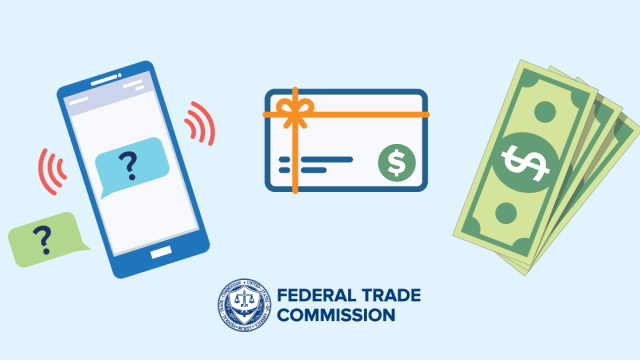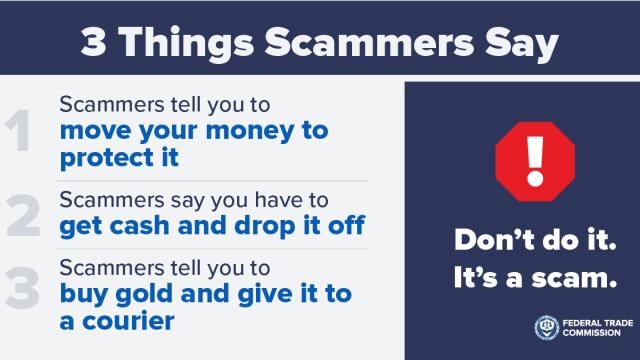The More You Know About Scams, the Less Likely it Is You’ll Be a Victim

The holiday season is fast approaching and that means scammers will be out in full force trying to trick you into giving them your money. But you can stay one step ahead of the scammers by learning all you can about the various scams that are causing so many people so much misery.
Yes, it’s true, scammers have been with us since civilization began. You’ve all heard of the Magic Elixir snake oil salesman of a century ago. The internet has made it easier for scammers to steal your money in so many different ways.
Today’s site pick, believe it or not, is a U.S. government site where you can learn more about some of the most popular scams that are waiting to ensnare you via text message, phone call, email, or website. The only way to avoid being a victim of a scam is to be very careful and learn all you can about the scams you’re most likely to encounter.
Scams have been around since civilization began. To some, there’s nothing better than getting money for nothing no matter how much it hurts others. Lack of conscience and morality seems more ubiquitous now than ever before, but maybe it just seems that way because so many kooks are on social media.
I digress. Today’s site pick is the United States Federal Trade Commission’s (FTC) Imposter Scams website. It’s so well done, I’m surprised. On the FTC’s Imposter Scams website, you’ll learn:
Never move your money to “protect it.” That’s a scam.
What’s a verification code and why would someone ask me for it?
Will your bank or investment fund stop a transfer to a scammer?
Did you get a call or text about a suspicious purchase on Amazon?
Did someone send you to a Bitcoin ATM? It’s a scam.
New tech support scammers want your life savings.
How To Spot, Avoid, and Report Tech Support Scams.
The latest tech support scams: scammers tell you someone hacked your bank or investment account and is using it for fraud. And they pretend to transfer you to a government agency for “help.” But it’s all a scam.
How to recognize a fake Geek Squad renewal scam.
Fake calls from Apple and Amazon support: What you need to know.
Scammers Use Fake Emergencies To Steal Your Money.
No one is using your Social Security number to commit crimes. It’s a scam.
The phone rings. Your caller ID says it’s the Social Security Administration. You hesitate. You’re not expecting a call from them, and you’ve heard about impersonation scams. But something inside you makes you pick up. And everything you’re about to hear is designed to scare you into doing whatever the caller says.
How To Spot, Avoid, and Report Tech Support Scams.
How to recognize a fake Geek Squad renewal scam.
Fake calls from Apple and Amazon support: What you need to know.
Scammers Use Fake Emergencies To Steal Your Money.
What to Know About Romance Scams
Utility Company Impersonators
A call from your gas, electric, or water company threatening to immediately turn off your service is probably a scam. Here’s what you need to know.Sure ways to spot a scammer
Scammers say and do things that can tell us they’re lying — and they’re not who they pretend to be. Of course, to hear or see those clues, we have to get past the panic scammers make us feel, thanks to the so-called emergencies they try to create. And since scammers are convincing, that can be hard to do. But recent scams are costing people their life savings, so here are some sure ways to spot the scammer.
Things only scammers will say:
“Act now!” That’s a scam. Scammers use pressure, so you don’t have time to think. But pressuring you to act now is always a sign of a scam. It’s also a reason to stop.
“Only say what I tell you to say.” That’s a scam. The minute someone tells you to lie to anyone — including bank tellers or investment brokers — stop. It’s a scam.
“Don’t trust anyone. They’re in on it.” That’s a scam. Scammers want to cut you off from anyone who might slow you down.
“Do [this] or you’ll be arrested.” That’s a scam. Any threat like this is a lie. Nobody needs money or information to keep you out of jail, keep you from being deported, or avoid bigger fines. They’re all scams.
“Don’t hang up.” That’s a scam. If someone wants to keep you on the phone while you go withdraw or transfer money, buy gift cards, or anything else they’re asking you to do: that’s a scammer. DO hang up.
And here’s a list of things that only scammers will tell you to do:
“Move your money to protect it” is a scam. Nobody legit will tell you to transfer or withdraw money from your bank or investment accounts. But scammers will.
“Withdraw money and buy gold bars” is a scam. Always. Every time.
“Withdraw cash and give it to [anyone]” is a scam. Doesn’t matter who they say: it’s a scam. Don’t give it to a courier, don’t deliver it anywhere, don’t send it. It’s a scam.
“Go to a Bitcoin ATM” is a scam. Nobody legit will ever insist you get cryptocurrency of any kind. And there’s no legit reason for someone to send you to a Bitcoin ATM. It’s a scam.
“Buy gift cards” is a scam. There’s never a reason to pay for anything with a gift card. And once you share the PIN numbers on the back, your money’s as good as gone.
If you see or hear any version of any of these phrases, you’ve just spotted a scammer. Instead of doing what they say, stop. Hang up. Delete the email. Stop texting. Block their number — anything to get away from them. And then, tell someone you trust and report the scam to the FTC.
And though that’s a lot of information, it is just a sample of what you’ll learn by visiting this week’s Cloudeight site pick the FTC’s How to Avoid Imposter Scams website.
It’s worth a visit and worth your time to read all the information on that website. The more you know the safer you. We don’t want you to be a victim of a scam…not today, not during the holiday season, not ever. Please do take the time to visit our site pick “How to Avoid Imposter Scams”.
The grief and money you save might just be your own.



Thank you for this site. You guys are the best!